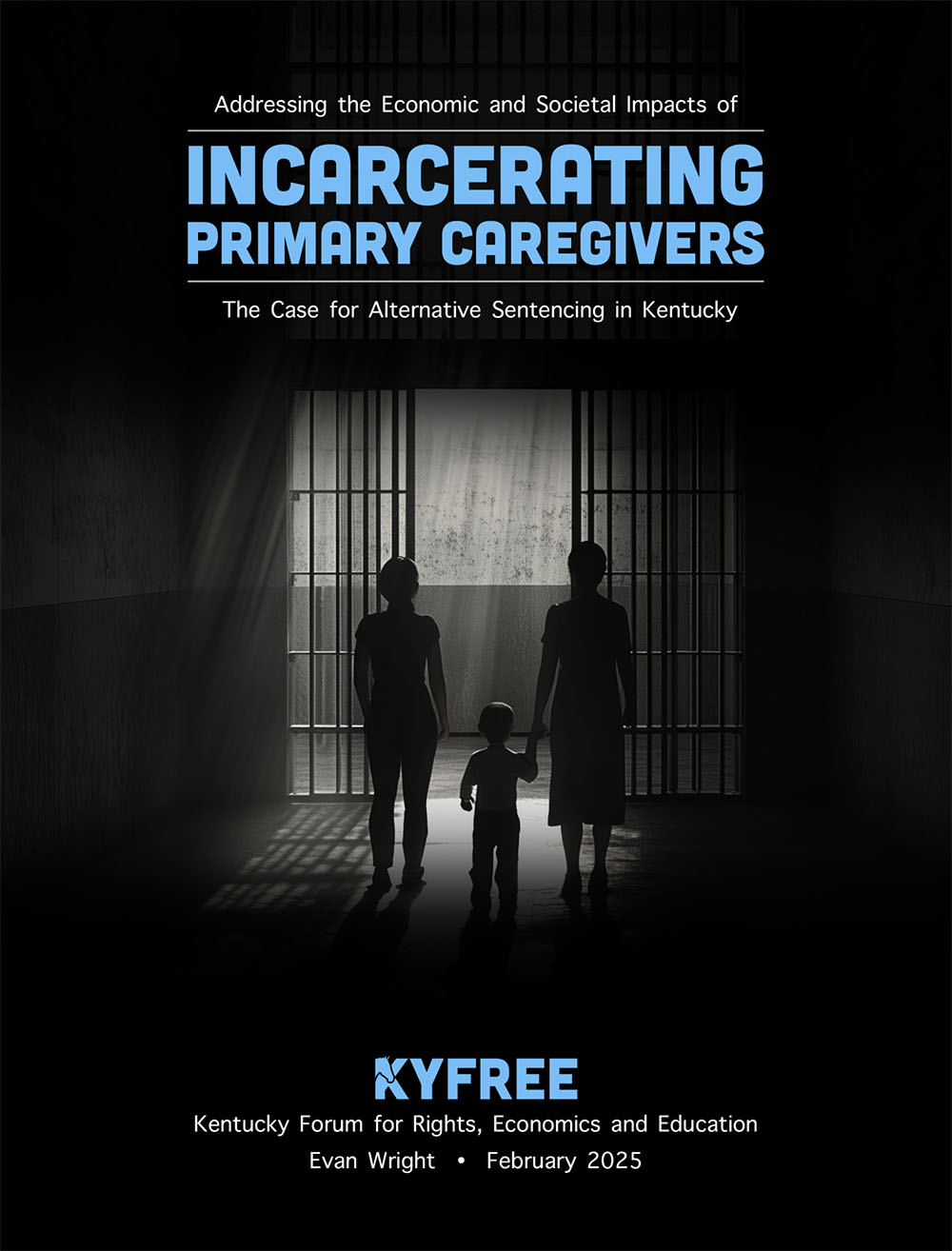Addressing the Economic and Societal Impacts of Incarcerating Primary Caregivers in Kentucky: The Case for Alternative Rehabilitation Programs, a recent report published by the Kentucky Forum for Rights, Economics, and Education (KYFREE), clarifies the far-reaching effects of locking up non-violent primary caregivers in the Bluegrass State.
Alternative rehabilitation programs could save Kentucky $74 million in direct jail expenditures and ultimately boost the state’s economy by $740 million a year, according to KYFREE’s analysis.
Thousands of children in Kentucky lose their primary caregivers every year as a result of being imprisoned for non-violent crimes. Kentucky’s 40th-place ranking for child well-being highlights the urgent need for legislative changes that give equal weight to strengthening families and holding those with non-violent offenses accountable.
According to KYFREE Vice President Sarah Durand, this report emphasizes the necessity of reevaluating our sentencing guidelines for non-violent offenders who are also parents to their children. In addition to having a detrimental effect on children’s emotional, social, and academic development, incarceration places a heavy financial strain on the state. Programs for alternative sentencing provide a more efficient and cost-effective way forward.
Important Results:
An estimated $74.5 million is spent directly on incarcerating non-violent primary caregivers in Kentucky.
An estimated $740 million is spent each year on the state’s economy and society as a whole as a result of main caregiver incarceration.
Offspring of incarcerated parents are more likely to experience mental health issues, lower educational attainment, increased rates of poverty, and criminal activity.
Probation, home arrest, and supervised treatment are examples of alternative sentencing methods that have been demonstrated to lower recidivism and promote family unity.
For suitable non-violent main caregivers, the report recommends giving evidence-based sentencing options priority, such as:
Pretrial Diversion Programs: Enabling qualified people to escape jail time through community service, counseling, or rehabilitation-focused activities.
Drug court programs drastically reduce recidivism rates by offering non-violent offenders who are battling with substance misuse organized treatment and monitoring.
Mental Health and Veterans Treatment Courts: Improving rehabilitation outcomes by addressing the underlying trauma-related and mental health concerns of those associated with the legal system.
For legislators and stakeholders in the criminal justice system looking for a well-rounded strategy that enhances public safety, eases the financial burden on state budgets, and guarantees improved results for Kentucky’s children and families, the report’s conclusions are crucial.
For additional details or to view the complete study, please go to kyfree.org.
The Kentucky Forum on Education, Economics, and Rights




